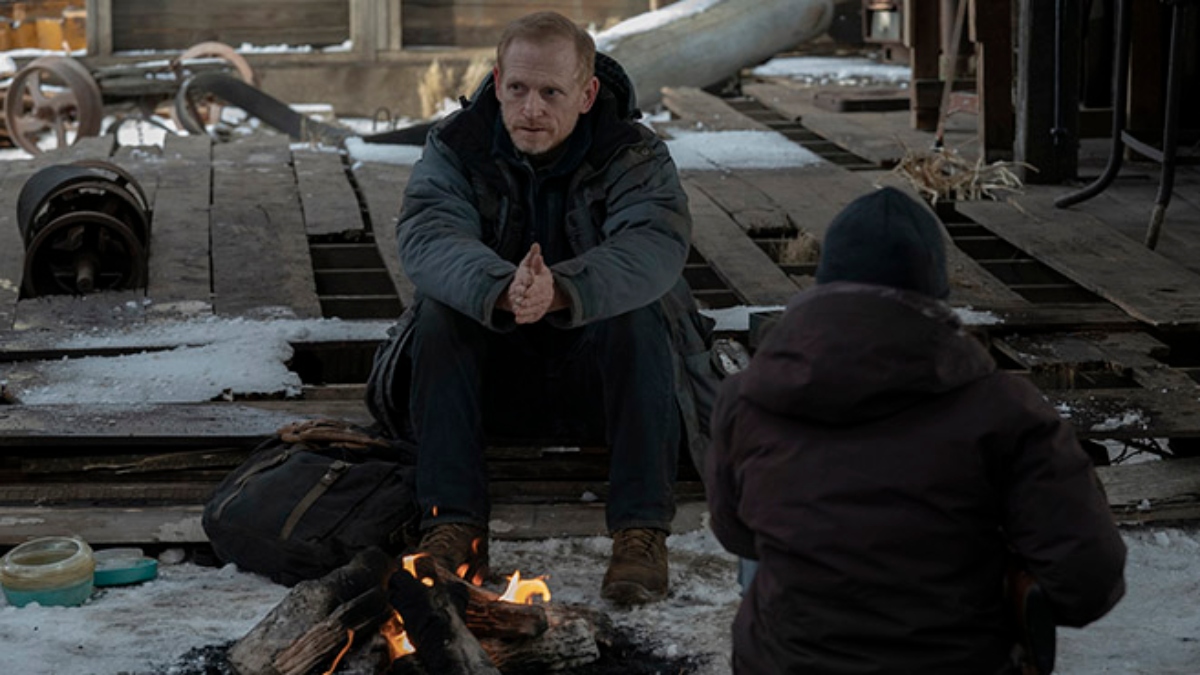Following last night’s unreal penultimate episode, HBO’s The Last of Us Podcast has dropped its eighth segment, which breaks down the creative decisions made by showrunners Craig Mazin and Neil Druckmann in “When We Are in Need.” This week, it was Bella Ramsey’s Ellie and Scott Shepherd’s David coming head to head after a chance encounter in the icy wilderness that dominated the conversation.
When Ellie and David meet in the digital source material, David wishes to trade Ellie some medicine for her deer carcass, freshly killed, to provide for his disciples. Before they can make that exchange, however, a horde of infected close in on their location, forcing Ellie and David to work together to fend them off. After saving each other’s hides, Ellie and David trade valuables and Ellie makes a beeline straight for Joel. In the TV series, however, there’s no infected in sight, which was allegedly a purposeful decision.
Mazin and Druckmann deliberately left out any inclusion of infected to instead focus on developing Ellie and David’s characters, without messy action sequences distracting from their fascinating interactions. There’s a lot to observe with Ellie and David and how they assess one another, almost as if sizing each other up if all hell breaks loose. Unbeknownst to Ellie, she’s nothing but a prize to be won for David, who allows her to crack jokes at his expense if only it weakens her defenses somewhat.
Craig Mazin: “In the game, that discussion happens after Ellie and David have to fight a lot of infected together, and it’s a really hard encounter, so they’re bonded by a certain trust because of gameplay.”
Troy Baker: “He cheers her on.”
Craig Mazin: “In the gameplay, you save each other’s lives. That’s how you build trust. Here, you have to build trust through a conversation. Because we felt… while we could do that, the plot implications of a lot of Infected running around out there that can just get you at any moment, it would permeate throughout the episode and we wanted it to function a different way.”
Obviously, Mazin and Druckmann were looking to expand on Ellie and David’s time together to develop their personalities in response to different stimuli. For David, his twisted mind has found an inexperienced, none-the-wiser teen to prey upon, whereas Ellie — concerned for Joel’s health — lets down her guard to contradict her independence with foolishness. It’s rather poetic storytelling, but it remains true that an ill-timed disruption from the infected would have potentially spoiled the development of those contrasting ideals.

